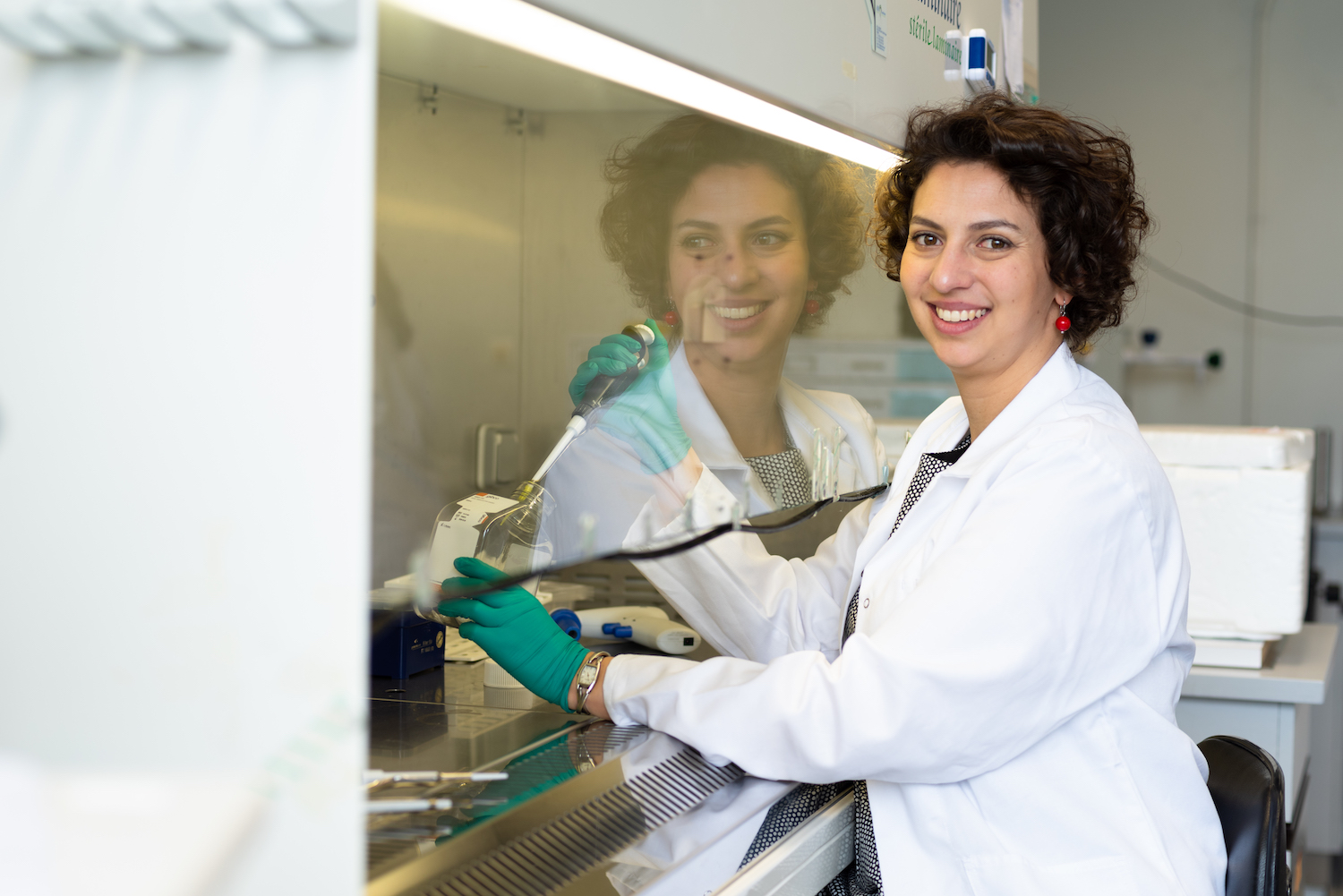Photo copyright: VUB / Thierry Geenen
Last year, Damya Laoui received the prestigious American MIT-prize for young innovators under 35 for her research on cancer immunotherapy. She is currently working on a cancer vaccine. BioVox had the opportunity to interview her.
Laoui studied bio-engineering at the VUB and has a PhD in tumor immunology. She did a postdoc at the cancer institute in Ecole Polytechnique Fédérale de Lausanne (EPFL). When she came back to Belgium, she started working as a team leader in the group of Jo Van Ginderachter at VUB/VIB.
What is your research about?
“We are studying the effect of macrophages and dendritic cells on cancer. These immune cells are supposed to protect our body against infections, but also against cancer. The problem is that in tumors, most of these cells are suppressed, so they can’t perform their actions anymore.”
Tell me more about the macrophages?
“We found that some macrophages are antitumoral, but others are protumoral. Once in the tumor, macrophages become good or bad depending on their environment and the localization.
Dendritic cells generate a memory response. They activate memory T-cells which will kill cancer cells.
We are now trying to find out how we can influence the tumor microenvironment, so that all macrophages become antitumoral. We are researching which factors turn macrophages good or bad and then we try to block these pathways.“
What about the cancer vaccine?
“Concerning dendritic cells, we found that 3 types were located in tumors. The most abundant type is protumoral, while two other types, which are antitumoral, occur only in very small numbers. One of the first challenges was to purify the good type of dendritic cells, which could then be used as a vaccine.
We have a proof of concept in mice that the vaccine can protect against tumor growth. When we isolated dendritic cells from tumors in mice and then treated other mice with them, we saw that tumor growth was significantly reduced in the second group.
In the future, I hope that we will have more female researchers.
In people it would work as follows: if you have a woman with breast cancer, we can isolate dendritic cells from the breast tumor and reinject them as a vaccine to the same patient, so that this patient wont relapse anymore.
Dendritic cells generate a memory response. They activate memory T-cells which will kill cancer cells. Once tumor cells appear in the body, the T-cells are already ready to attack.”
When would this be applicable to people?
“We would like to do our first tests in humans within 2 to 3 years. Once we start a study in humans, it will take some time to see if the treatment works. You can only evaluate if the vaccine works when the critical period for relapse has passed. We are currently working on this in collaboration with the University Hospital (UZ Brussel) with Dr Bart Neyns and Dr Marjan Vanhoeij.
I said I would come anyways and that I would find my own money if necessary.
Our technology is patented and the VIB Tech Transfer Office is looking at how we can fund clinical trials. However, our research won’t result in a product that can be sold by pharmaceutical companies. We are really developing personalized therapy and we will need to build patient centers where we can administer this kind of therapy.”
What is your long-term ambition? What are your hopes for the future?
“I really love doing research and have applied for a professorship. In academia, finding funding is not always easy; but if you have an idea, and you have funding for it, you can do research on it if you want. I think that you are not that free in industry.
In the future, I hope that we will have more female researchers. I feel that – as a woman – I still need to prove myself more. Unfortunately, I have personally experienced this myself. When I went to Switzerland for my postdoc, I wasn’t welcome at first because I have a kid. I said I would come anyways and that I would find my own money if necessary. Luckily in the end it all worked out when it became clear that having a kid doesn’t have to be an issue. Young girls need to know that women are equally as good as men.”


